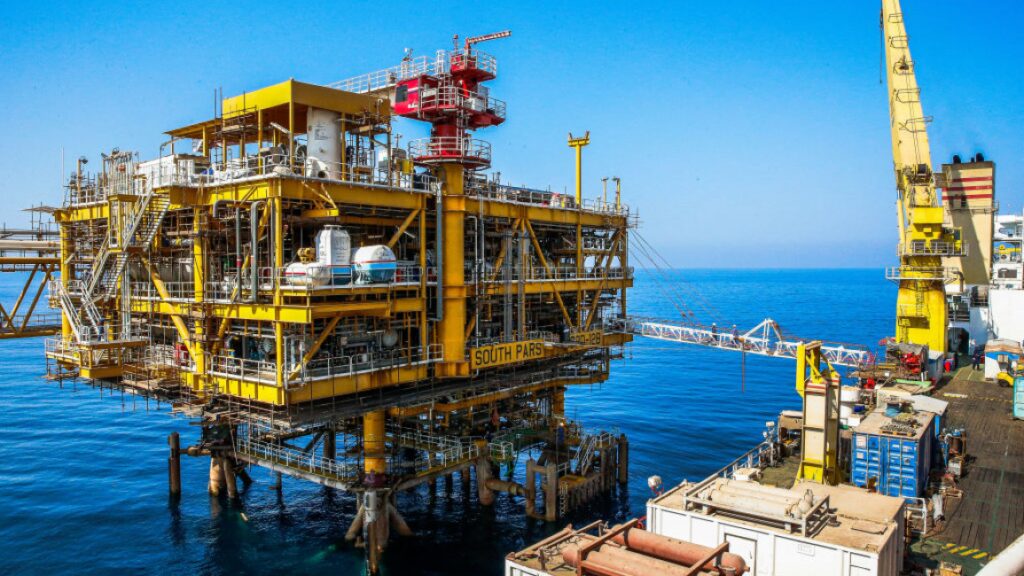
Iran appeared to be taking preparations in anticipation of a potential Israeli strike on its oil facilities, despite US warnings to Israel regarding this.
Iran is anticipating an Israeli attack after it launched ballistic missiles against Israel earlier this month, and appears to be taking steps in preparation for this, notably at its oil facilities.
Last Sunday, Iranian oil minister Mohsen Paknejad visited Kharg Island in The Gulf, where Iran’s main oil export terminal is located, Reuters reported.
The oil ministry’s website said that he was there “to visit the oil facilities and meet operational staff located on Kharg Island,” but he also met with Revolutionary Guards Navy commander Mohammed Hossein Bargahi, to discuss the security of gas platforms in the area and assess the operations of the Guards’ Navy.
“The Islamic Revolutionary Guard Corps Navy plays an important role in the security of oil and gas facilities,” he said.
On the X social media platform, the maritime tracking account Tanker Trackers said last week that oil tankers had been observed vacating the waters around Kharg Island amid expectations of an Israeli attack, citing satellite imagery.
“The National Iranian Tanker Company (NITC) appears to be fearing an imminent attack by Israel. Their empty VLCC [very large crude carrier] supertankers vacated the country’s largest oil terminal, Kharg Island, yesterday,” it said on October 3.
However, on Tuesday, it posted that two supertankers were loading oil supplies at the terminal, despite the continued risk of Israeli attack.
All of Iran’s oil terminals are located on the coast of The Arabian/Persian Gulf or The Gulf of Oman. Other ports that Israel could potentially target include Bandar Abbas, Asaluyeh, Mahshahr, and Jask, which is located in the Gulf of Oman.
There has been speculation worldwide that Israel could strike Iranian oil or nuclear facilities following Iran’s missile strike on Israel.
The US has indicated however that it opposes such strikes, and The New York Times reported that an Israeli strike would likely focus on military bases and intelligence and leadership sites instead, citing officials.
Iran issued its warning to Israel on Tuesday regarding oil sites, with Foreign Minister Abbas Araghchi saying, “Any attack against infrastructure in Iran will provoke an even stronger response”.
However, there is still movement within Israel to strike Iran’s nuclear or oil facilities, with former Israeli Prime Minister Naftali Bennett tweeting, “We must act now to destroy Iran’s nuclear program, its central energy facilities, and to fatally cripple this terrorist regime.”
While many of Iran’s nuclear facilities are underground and it is doubtful that Israel would be able to cripple its nuclear programme if it carries out airstrikes alone, Israeli aircraft can theoretically do serious damage to its oil terminals, despite the long flying distances involved.
The Israeli air force has previously trained for this, according to the New York Times and Israeli Prime Minister Benjamin Netanyahu’s government has already shown that it is prepared to take its brutal war on Gaza to the rest of the Middle East.
However, Israel will also have to consider the consequences of such an escalation – including a response from Iran and its proxies – and some Arab countries have reportedly given assurances to Iran that they won’t support such Israeli action.
